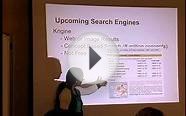Semantics word play
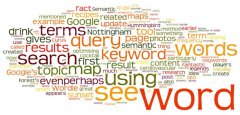 Semantic keyword association has been a factor in Google’s algorithms since the Hummingbird update in August earlier this year. It was an update which took Google’s ranking factors to the next level. Rather than us optimising for certain keywords, we now find ourselves having to optimise for entire topics by using natural variants of the words e.g. sunset photographs, sunset photos, photos of sunsets, sunset photography.
Semantic keyword association has been a factor in Google’s algorithms since the Hummingbird update in August earlier this year. It was an update which took Google’s ranking factors to the next level. Rather than us optimising for certain keywords, we now find ourselves having to optimise for entire topics by using natural variants of the words e.g. sunset photographs, sunset photos, photos of sunsets, sunset photography.
Finding the exact keyword to use is seemingly a thing of the past as Google now understands not just the search query, but the searcher’s intent – a big difference.
So how do we define semantic search, well;
 Semantic search is a search or a question or an action that produces meaningful results, even when the retrieved items contain none of the query terms, or the search involves no query text at all.”
Semantic search is a search or a question or an action that produces meaningful results, even when the retrieved items contain none of the query terms, or the search involves no query text at all.”
So, where do word maps come into this?
Using a word map gives you the ability to see a visual snapshot of the terms you are using in your written copy and the terms your competitors are using to rank for.
Word maps aren’t going to be the definitive tool for keyword research, in fact, far from it. But what they do is allow you to visually see which words you are using around a topic and gives you the chance to say: ”hey, are these the terms that are related to dog photos?”.
I particularly like using a word mapping tool called Wordle.
The great thing about Wordle is that it automatically removes commonly occurring words in the English language such as ‘and’, ‘to’, and but’ which gives you a clearer idea of what your page is about.
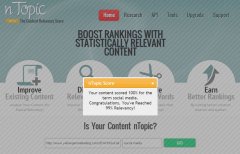 Is this important in search though?
Is this important in search though?
Cyrus explains:
TF-IDF doesn’t measure how often a keyword appears, but offers a measurement of importance by comparing how often a keyword appears compared to expectations gathered from a larger set of documents.”
Based on frequency, rarer terms on a page will be more significant in the ranking process than more common words. So removing these ‘common’ words from Wordle, a tool not created for SEO, helps.
[If any developers are reading, perhaps a word map with an API to Google’s Ngram viewer may be something of interest ;)]
 1. Creating content
1. Creating content
By using a word map, you are able to visually see the variety of semantics you’ve used in your written content, which allows you to say: “hey, are these the terms which really surround this topic?”
Here’s an example of using a word map I created to help craft content. I’ve taken one of my recent post, ‘Social Media – which network is right for my brand?’, submitted the URL and here are the results.
You can see the words are all closely related to social media, which is great (I notice the word ‘users’ stands out – from a writing aspect, perhaps I could have found an alternative term!).
I can double check this using a fantastic tool called nTopic which scores your relevance to the topic. As you can see, I scored 99% relevancy. Woo!
You might also like
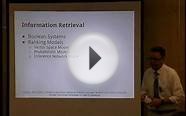
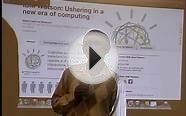

|
Google Semantic Search: Search Engine Optimization (SEO) Techniques That Get Your Company More Traffic, Increase Brand Impact, and Amplify Your Online Presence (Que Biz-Tech) Book (Que Publishing) |



